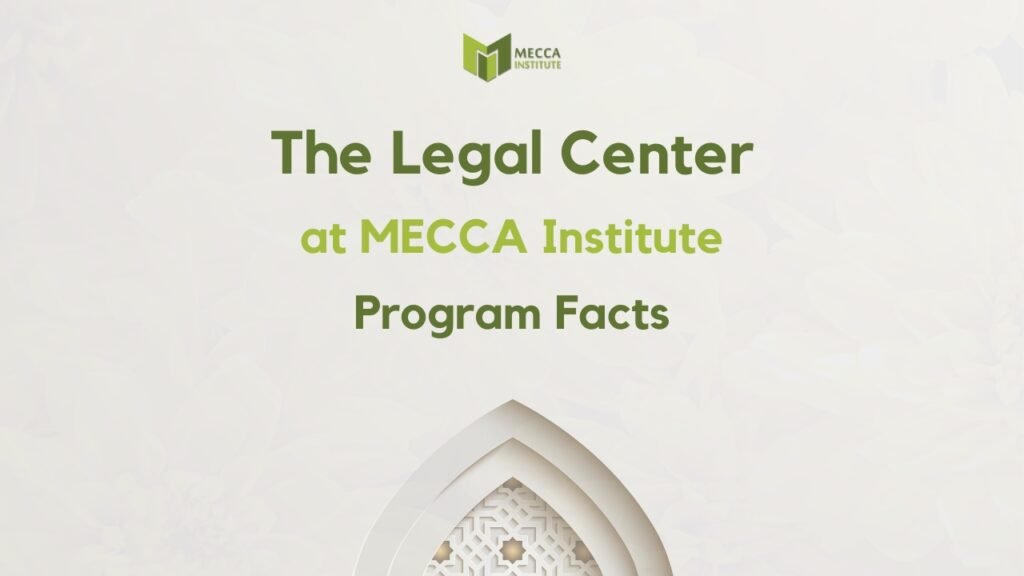Packet for Lawyers in Consideration of The Legal Center at MECCA Institute.
MECCA Institute’s Legal Center is a program that has several projects, including a comparative analysis of Sharia law and U.S. law, led by Muslim lawyers collaborating with Islamic scholars.
Please, see our Sharia guide to see our perspective on that.
By exploring spiritual and legal intersections, the program aims to enrich the legal understanding of both Muslim and U.S. law, as well as cultivate multicultural dialogue.
Participating Muslim lawyers will gain insights into diverse legal systems, which is expected to enhance their expertise and cultural competency.
Marketing includes press releases, media outreach, engagement with legal associations, academic partnerships, social media campaigns, and more.
Featured lawyers for our programs will have their own page on our website, which includes relevant information, such as their area of focus.
Lawyer pages will also include SEO-optimized material, including related pages, in an effort to draw organic traffic to our program.
The combined efforts of the program are expected to grow our featured lawyers’ businesses, including branding, caseload, and more.
Specifics of the Program
The program has various specifics. Key stakeholders, the focus, marketing, collaborations, social media, and other areas are all covered in the following specifics.
Key Stakeholders
The key stakeholders are both the Muslim community and the legal profession in the United States.
This includes prominent Muslim lawyers, legal scholars in general, community leaders, and media contacts who can help promote the project.
The Focus
The program has an overall focus to help people on both sides understand and benefit from the laws. It also has multiple focuses, each determined by the project.
For example, the Sharia project highlights the significance of comparing Sharia law with U.S. law.
Our focus for that project is on the cultural and legal insights that can be gained from such a comparative analysis.
It is also how it contributes to legal discourse and multicultural understanding, as well as dispelling misconceptions about Sharia.
Marketing
We plan to create press releases that outline the objectives, scope, and potential impact of the progam. We will distribute said press releases to relevant media outlets, legal publications, and journalist contacts.
We plan to follow up with personalized pitches to key reporters covering legal affairs or multicultural issues, as well as members of the media who have shown interest in Islamic topics previously.
The goal is to secure interviews with project leaders, participating lawyers, and scholars for podcasts, radio shows, or television segments.
Plus, we plan to pitch op-eds or guest articles to legal publications, newspapers, and online platforms to present the project’s importance and generate public discourse.
Finally, we plan to use advertisements indirectly by boosting some of the social media posts that feature the program.
Collaborations
We plan to partner with other academic institutions, particularly law schools or departments specializing in comparative law or multicultural studies.
For that effort, we plan to offer to conduct workshops, seminars, or guest lectures on the project.
Our goal is to cultivate an academic interest and generate media coverage.
Social Media
We plan to leverage social media platforms to amplify the project’s visibility. We will share updates, insights, and relevant articles.
Our focus is platforms like Facebook, Twitter, and YouTube.
We also plan to engage with influencers, legal scholars, and community leaders to spark conversations and generate buzz.
Roundtable
We are planning to establish a lawyer roundtable. This is for those in our community seeking legal understanding in various areas of practice related to Sharia law and U.S. law.

